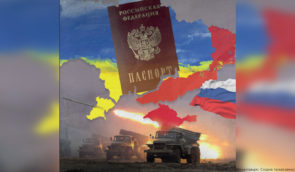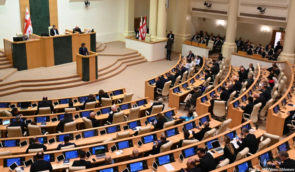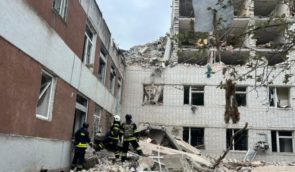Human rights defenders demand solving problem of stateless Ukrainians
Thousands of people in Ukraine have been living without proper documents and citizenship for more than 20 years. They remain absolutely invisible for the state, resulting in violation of their rights and total impoverishment.
During the “field” monitoring in the border areas of Odesa region in 2014-2015, the human rights activists have discovered more than 150 people who have had serious problems with the uncertain legal status of stateless persons or persons of undefined citizenship.
Some of these people have invalid passports of the former Soviet Union, other people have the documents of the unrecognized Transnistrian Moldovan Republic, some have only the Soviet birth certificates or no documents at all.
“Children of these people, who were born in Ukraine, do not have documents in most cases. Despite long residence in Ukraine (mainly 10-20 years), people are missing in the official databases and remain ‘legal ghosts’ who are deprived of all rights and are on the brink of survival,” deputy chairman of the Odesa regional organization of NGO “Committee of Voters of Ukraine” Ihor Brynosh.
The human rights activists believe that the detected issues affect not only Odesa region but other regions of Ukraine as well, especially those with the border specificity. Thus, according to the UNHCR, more than 33,000 stateless persons or persons of undefined citizenship live in Ukraine.
“The current legislation of Ukraine does not provide for effective ways of legalization of such people simultaneously pushing them off with liability for illegal stay in Ukraine. But despite everything, these people associate their future and the future of their children with Ukraine only, so the state should look for the effective non-discriminatory ways to address the problem of statelessness in the near future,” Ihor Brynosh said.
%%GALLERY%%
Tymofiy Pleshka, who still cannot get citizenship of Ukraine, has been living in Ukraine with the Soviet passport for 18 years already.
In March 2014, he, despite the lack of Ukrainian citizenship and any legal status, was mobilized to the State Border Guard Service. The military commissar told him that since he had been living in Ukraine for more than five years, he was a citizen of Ukraine automatically.
Tymofiy Pleshka (nom-de-guerre “Legionnaire”) was injured in the ATO. However, the still has not obtained the combatant status and does not even know how to act in this situation.
“When I tried to get Ukrainian citizenship and official status in Ukraine, I was sent from office to office without showing any interest and refusing to help. Then I was useless, but when a need to defend the country arose, I was mobilized and sent to the ATO without any questions. Despite these circumstances, I still want to live in Ukraine and defend it. I consider Ukraine to be my home and hope that the public authorities will finally pay attention to the problem of statelessness and will find the ways to solve it,” Tymofiy Pleshka said.
In 2013, Ukraine joined two UN conventions on statelessness. However, the legal framework of the country on this issue has not been brought into compliance with their provisions. So the inalienable rights of the stateless persons and the persons of undefined citizenship are not exercised.
According to the human rights activists, Ukraine thereby violates the right to adequate standard of living, the right to education, to health care and other basic rights.
“The majority of stateless persons of undefined legal status is on the brink of impoverishment and is unable to pay for legal experts and lawyers. In addition, often uncertainty and inconsistency with international standards of Ukrainian legislation lead to a dead end – a situation when a person has no actual opportunities for collecting the documents required by the state. For example, such a barrier may be the lack of procedures for establishing a stateless people who lost their documents,” lawyer Yulia Lisova said.
Head of the project of the All-Ukrainian Charitable Organization “Right to Protection” Daryna Tolkach believes that state should pay special attention to adequate definition of the term “stateless person” in the Ukrainian legislation.
Another problem, in her view, is that national legislation still does not reflect the demand of the Convention 1954 to facilitate the naturalization of stateless persons. It also does not give the stateless persons the right to receive identification documents under Article 27 of the Convention.
“If the status of stateless persons is unrecognized and they have no documents, this leads to absolute absence of the rights,” Daryna Tolkach said.
The experts also advise not to neglect international legal human rights mechanisms such as the European Court of Human Rights, the UN treaty bodies, and the UN special procedures.
“Despite some disadvantages (long consideration, lack of performance of duty, etc.), their decisions and recommendations have a tremendous impact on the formation of the judicial practice as well as the level of efficiency of public administration and law enforcement in the field of statelessness,” Yulia Lisova adds.



























